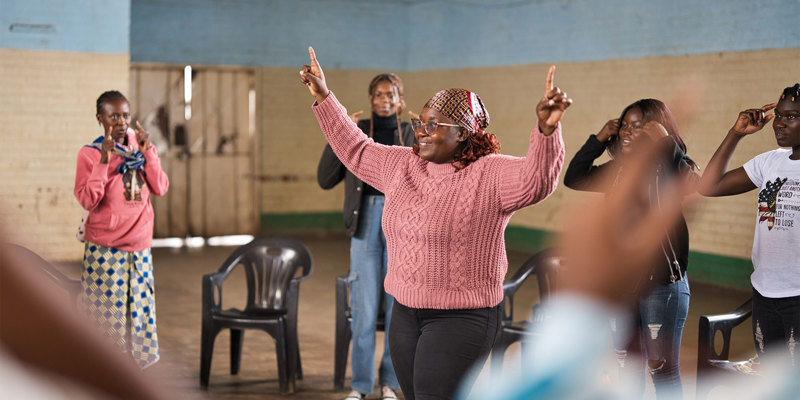Partnership Forum Discusses Strategy for New Era
03 September 2015
BUENOS AIRES - Partners in global health began discussions today aimed at shaping a new strategy for the Global Fund partnership to accelerate the end of AIDS, tuberculosis and malaria as epidemics and to build resilient and sustainable systems for health.
The Partnership Forum brought together more than 110 participants from communities affected by the diseases, civil society, nongovernmental organizations, governments, technical partners and the private sector to a two-day gathering to influence the development of the Global Fund’s new strategy.
Recent scientific advances and growing experience in implementation mean there is an historic opportunity to end the three diseases as public health threats, and the forum will discuss how the partnership can achieve more impact in a changing health and development landscape and contribute to the Sustainable Development Goals.
“The development of the new strategy gives us an opportunity to end the three epidemics,” said Aida Kurtovic, the Vice-Chair of the Global Fund Board. “We need an ambitious strategy that puts us in a position to eliminate the three diseases.”
Participants will share their thinking on topics such as building resilient and sustainable systems for health, strengthening community services, human rights and gender, key populations, challenging operating environments and sustainable transition away from Global Fund support.
“We can’t do this alone. We need your help. We are here to listen,” said Anita Asiimwe, Vice-Chair of the Board’s Strategy, Investment and Impact Committee, which is steering the strategy development process. “This strategy will be the first one for the Global Fund in a new era.”
The Buenos Aires Partnership Forum, bringing participants from Latin America, the Caribbean, Eastern Europe and Central Asia, is the third of three similar events to inform the new strategy. In June, a meeting was held in Bangkok, Thailand, and another forum was convened in Addis Ababa, Ethiopia, in May.
Dr. Mirta Roses Periago, Global Fund Board member for Latin America and the Caribbean and a member of the Strategy, Investment and Impact Committee, said the regions represented at the Buenos Aires Partnership Forum present common characteristics and challenges. They have concentrated epidemics and comprise mostly middle-income countries.
“This is an opportunity to listen to affected communities, governments and nongovernment organizations who have demonstrated strong commitment to increasing funding and access of essential services to their populations,” Dr. Roses Periago said.
Sandra Elisabeth Roelofs, Global Fund Board member for Eastern Europe and Central Asia, added: “For middle-income countries it is important that transition and sustainability become key strategic objectives to guarantee good planning, enough time and predictability with relevant funding to continue fighting the three diseases in these countries.”
Echoing a concern shared by many civil society groups present here, Javier Hourcade Bellocq, regional representative from Latin America and the Caribbean of International HIV/AIDS Alliance, said that while domestic resources are available in countries that enjoy middle-income status, Global Fund’s investments are still needed to ensure that key populations are not left behind and that human rights barriers to health are removed.
“At present, in most of our countries, the legal and political conditions are not in place for governments to assume direct investment in civil society organizations and key vulnerable populations,” Hourcade Bellocq said. “Without an orderly transition, we risk losing our gains.”
The Global Fund also ran an e-Forum to enable people who cannot make it to these meetings to share their views online.







